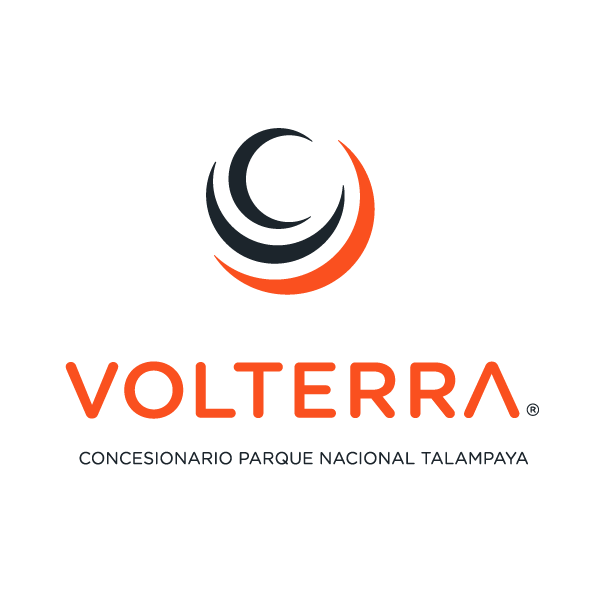

Volterra SRL

La Rioja Province, Argentina
August 2019
Other recreation
Service with Significant Environmental Footprint
Argentina
Volterra es un empresa Argentina, concesionaria del Parque Nacional Talampaya, sitio declarado Patrimonio de la Humanidad, con más de 20 años de trayectoria en el rubro y 15 años particularmente prestando servicios en esta área protegida. Entre los objetivos primordiales de la compañía está el compromiso de acercar a los visitantes de Argentina y del mundo entero a la belleza del principal atractivo de este Parque Nacional, el “Cañon de Talampaya”. Se ofrecen experiencias de calidad, con un alto nivel de compromiso ambiental y hacia la comunidad que la rodea, es por ello que cuenta con un equipo de colaboradores locales altamente calificado para acompañar al turista a vivir su experiencia en este magnífico lugar. Volterra is an Argentine company, concessionaire of the Talampaya National Park, a World Heritage Site, with more than 20 years of experience in the field and 15 years particularly providing services in this protected area.
Overall B Impact Score
Governance 15.1
Governance evaluates a company's overall mission, engagement around its social/environmental impact, ethics, and transparency. This section also evaluates the ability of a company to protect their mission and formally consider stakeholders in decision making through their corporate structure (e.g. benefit corporation) or corporate governing documents.
What is this? A company with an Impact Business Model is intentionally designed to create a specific positive outcome for one of its stakeholders - such as workers, community, environment, or customers.
Workers 24.7
Workers evaluates a company’s contributions to its employees’ financial security, health & safety, wellness, career development, and engagement & satisfaction. In addition, this section recognizes business models designed to benefit workers, such as companies that are at least 40% owned by non-executive employees and those that have workforce development programs to support individuals with barriers to employment.
Community 21.8
Community evaluates a company’s engagement with and impact on the communities in which it operates, hires from, and sources from. Topics include diversity, equity & inclusion, economic impact, civic engagement, charitable giving, and supply chain management. In addition, this section recognizes business models that are designed to address specific community-oriented problems, such as poverty alleviation through fair trade sourcing or distribution via microenterprises, producer cooperative models, locally focused economic development, and formal charitable giving commitments.
Environment 28.6
Environment evaluates a company’s overall environmental management practices as well as its impact on the air, climate, water, land, and biodiversity. This includes the direct impact of a company’s operations and, when applicable its supply chain and distribution channels. This section also recognizes companies with environmentally innovative production processes and those that sell products or services that have a positive environmental impact. Some examples might include products and services that create renewable energy, reduce consumption or waste, conserve land or wildlife, provide less toxic alternatives to the market, or educate people about environmental problems.
What is this? A company with an Impact Business Model is intentionally designed to create a specific positive outcome for one of its stakeholders - such as workers, community, environment, or customers.
Customers 3.8
Customers evaluates a company’s stewardship of its customers through the quality of its products and services, ethical marketing, data privacy and security, and feedback channels. In addition, this section recognizes products or services that are designed to address a particular social problem for or through its customers, such as health or educational products, arts & media products, serving underserved customers/clients, and services that improve the social impact of other businesses or organizations.